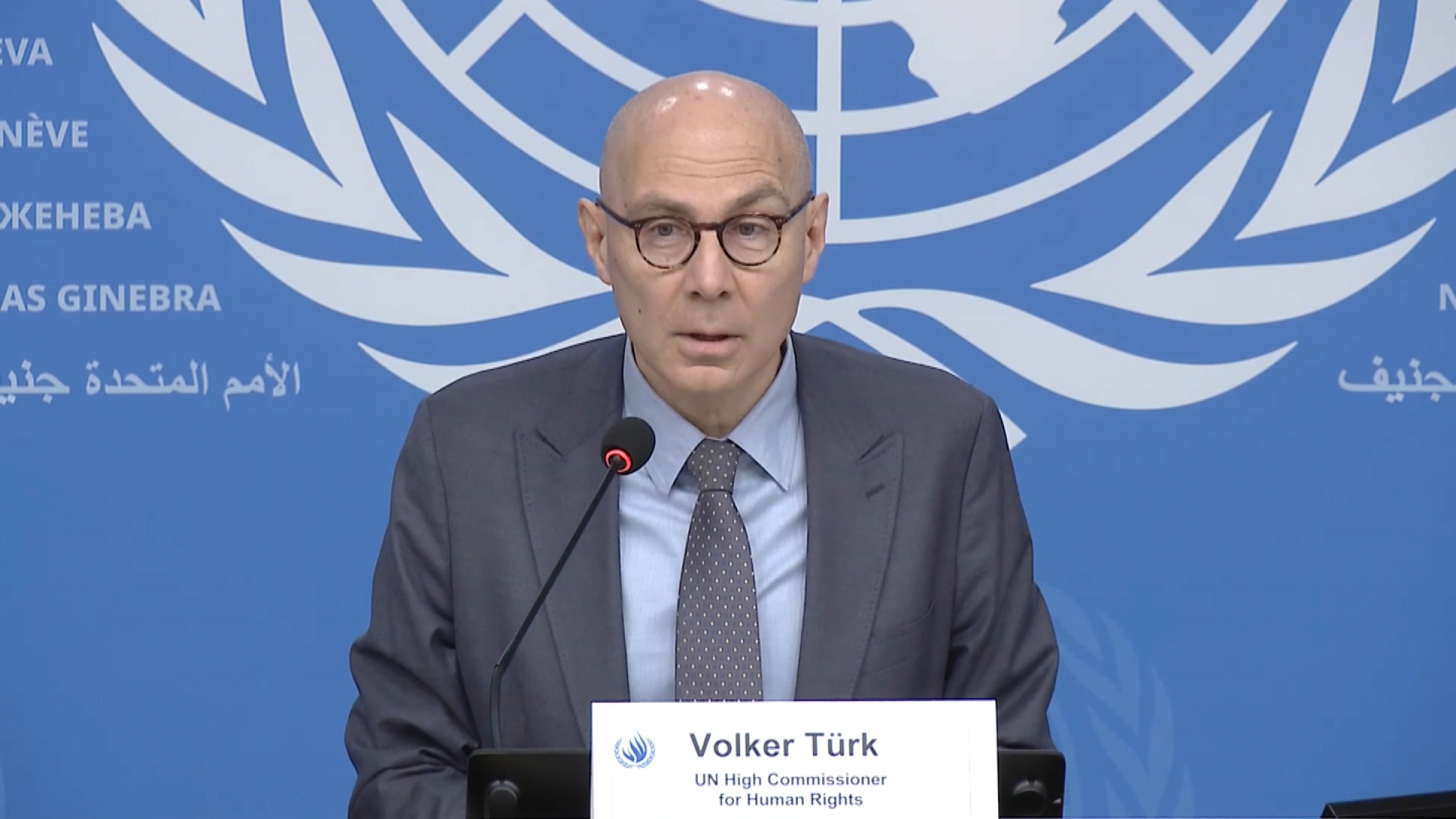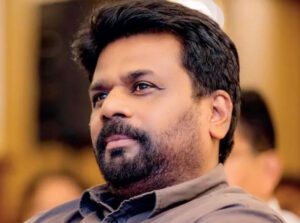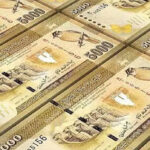
UN Human Rights Push and Economic Crossroads in Sri Lanka
- CNL Reporter
- July 1, 2025
- Weekly Political Review
- Sri Lanka
- 0 Comments
Weekly Political Review
Wide Angle focuses: UN Human Rights Push and Economic Crossroads in Sri Lanka
UN High Commissioner Renews Human Rights Demands While IMF, US Tariff Talks Highlight Fragile Recovery
By Rohana Jith
Sri Lanka entered a politically and diplomatically intense week, grappling with fresh scrutiny over its human rights record while simultaneously navigating precarious economic ground amid stalled IMF funds and unresolved US trade talks.
The spotlight returned to Colombo following last week’s visit by United Nations High Commissioner for Human Rights, Volker Türk. His trip comes at a time when the newly elected Anura Kumara Dissanayake (AKD)-led National People’s Power (NPP) Government is already struggling to balance its ambitious economic recovery agenda. Türk’s visit has served as a critical reminder that Sri Lanka’s international obligations—especially on human rights—remain under close watch.
The September sessions of the UN Human Rights Council (UNHRC) are fast approaching, during which Türk will present his findings alongside updates from the Core Group on Sri Lanka comprising the UK, Canada, and Germany. This will effectively serve as the first “report card” for the AKD administration on human rights reforms—a topic that had been shelved over recent years in favour of managing the economic crisis.
At the same time, economic issues remain at the heart of national policy discourse. With the IMF Executive Board due to decide on the disbursement of a long-pending loan tranche on July 1, and with the United States still non-committal on proposed tariff reforms, Sri Lanka’s short-term economic trajectory remains highly uncertain. Former Treasury Secretary Mahinda Siriwardana succinctly captured this in a televised interview, stressing that the country is at a turning point and must leverage the fiscal breathing room gained through debt restructuring to push through essential reforms.
Human Rights: Renewed International Pressure and Domestic Reassurance

Volker Türk’s visit included high-level engagements with Prime Minister Harini Amarasuriya and key cabinet members. Amarasuriya reiterated the government’s commitment to uphold the full spectrum of human rights—including civil, social, and economic rights—and underscored reconciliation as a priority, supported by mechanisms like the Office on Missing Persons (OMP), Office for Reparations (OR), and the Office for National Unity and Reconciliation (ONUR).
Further bolstering this stance, both Foreign Minister Herath and Justice Minister Harshana Nanayakkara assured Türk that the controversial Prevention of Terrorism Act (PTA) would be repealed and replaced with new legislation in Parliament soon.
Despite these assurances, tensions emerged in Parliament over Türk’s joint meeting with both Government and Opposition MPs. Opposition figures, including Samagi Jana Balawegaya (SJB) leader Sajith Premadasa, questioned the motive behind a single group meeting, arguing that such encounters should allow Opposition voices to be heard separately, without potential Government framing or interference.
Premadasa also used the meeting to push for a constitutional amendment that would broaden the scope of guaranteed human rights. He linked economic struggles to human rights violations, citing IMF-imposed austerity as a violation of basic living standards, and urged the UNHRC to advocate for economic relief. He highlighted global examples, such as South Africa, where socio-economic burdens have been legally interpreted as infringements on human dignity.
The meeting, however, turned heated when Jaffna MP Ramanathan Archchuna called for an investigation into alleged war crimes in the Northern Province. Government Minister Bimal Rathnayake strongly rebutted the claim, and a verbal clash ensued, much to the surprise of the UN delegation. Namal Rajapaksa later remarked that the politicisation of human rights debates in Sri Lanka has consistently undermined the nation’s ability to genuinely address such issues.
Economic Uncertainty: IMF Tranche, US Tariffs, and Power Sector Discord

As diplomatic attention centred on human rights, Sri Lanka’s fragile economy continued to face uncertainty. The IMF’s pending disbursement remains in limbo, primarily due to delays in aligning electricity pricing with the fund’s recommendations. The Government’s recent tariff revisions appear to have met the requirement, but the final verdict rests with the IMF Board.
Simultaneously, ongoing trade discussions with the US remain inconclusive. Sri Lanka sends nearly 25% of its exports to the United States, and new tariff frameworks could impose up to 44% duties on certain goods—placing immense pressure on President AKD’s administration. A recent Bloomberg report warned that shifting export routes away from the US would be a herculean task, adding that Sri Lanka must urgently boost foreign exchange earnings to maintain 5% GDP growth and meet debt obligations.
Adding to the economic tension is a growing dispute in the power sector. Major development partners—the ADB, JICA, and the World Bank—issued a joint letter expressing concern over the latest Electricity Act amendments gazetted by the Government. The letter pointed out that the proposed changes undermine principles of transparency, financial sustainability, and consumer protection. Key concerns included the roles of permanent government ownership, the national transmission network, distribution authority, and regulatory independence.

Energy Minister Kanchana Jayakody dismissed the concerns as “undiplomatic,” accusing the institutions of politicising the issue. Nonetheless, the friction raises doubts about the continued cooperation of global lenders and partners at a time when Sri Lanka desperately needs investment in its energy and infrastructure sectors.
Opposition Frustrations and Growing Speculation
The Opposition also expressed growing suspicion over the Government’s efforts to limit their access to visiting foreign dignitaries. Their concerns intensified following IMF First Deputy Managing Director Gita Gopinath’s recent visit, during which she did not meet any Opposition figures—a departure from standard practice. This has triggered fears that the Government is intentionally restricting access to international visitors to shape a favourable narrative.
Meanwhile, President AKD is reportedly planning another official visit to China, although the exact timing—whether July or August—remains unclear. The visit is expected to build on recent diplomatic engagements by NPP leaders, including a recent 10-day tour by JVP General Secretary Tilvin Silva. These frequent visits signal deepening ties between the NPP-led administration and the Chinese Government.

Investigations and Accountability: Spotlight on the Past
In another significant development, Sri Lanka’s Criminal Investigation Department (CID) has begun probing the overseas travels of former President Ranil Wickremesinghe. Specifically, a 2023 visit to the UK—ostensibly to attend his wife’s graduation—has come under scrutiny. Police claim that Rs. 16.9 million in state funds were spent on the trip, during which ten individuals accompanied the former President.
While Wickremesinghe’s office has dismissed the allegations as false and promised a formal response, the case is being investigated under the Offences Against Public Property Act. The probe is part of a broader investigation into wealth accumulation by former ministers and officials. Authorities are also examining real estate acquisitions in Colombo and other prime areas by politicians and their families.
Moreover, the CID and the Commission to Investigate Allegations of Bribery or Corruption (CIABOC) have launched inquiries into 18 former ministry secretaries suspected of enabling large-scale financial fraud during past administrations. Efforts are underway to bring back five such officials currently residing abroad.
Conclusion
This past week has been one of converging pressures for Sri Lanka. While the Government aims to deliver on its promises of economic reform and global engagement, it is simultaneously being held accountable on the human rights front. As the UNHRC prepares its next report and economic negotiations hit critical junctures, the coming weeks will be a litmus test for the AKD administration’s ability to juggle transparency, diplomacy, and governance amid intense international and domestic scrutiny.

